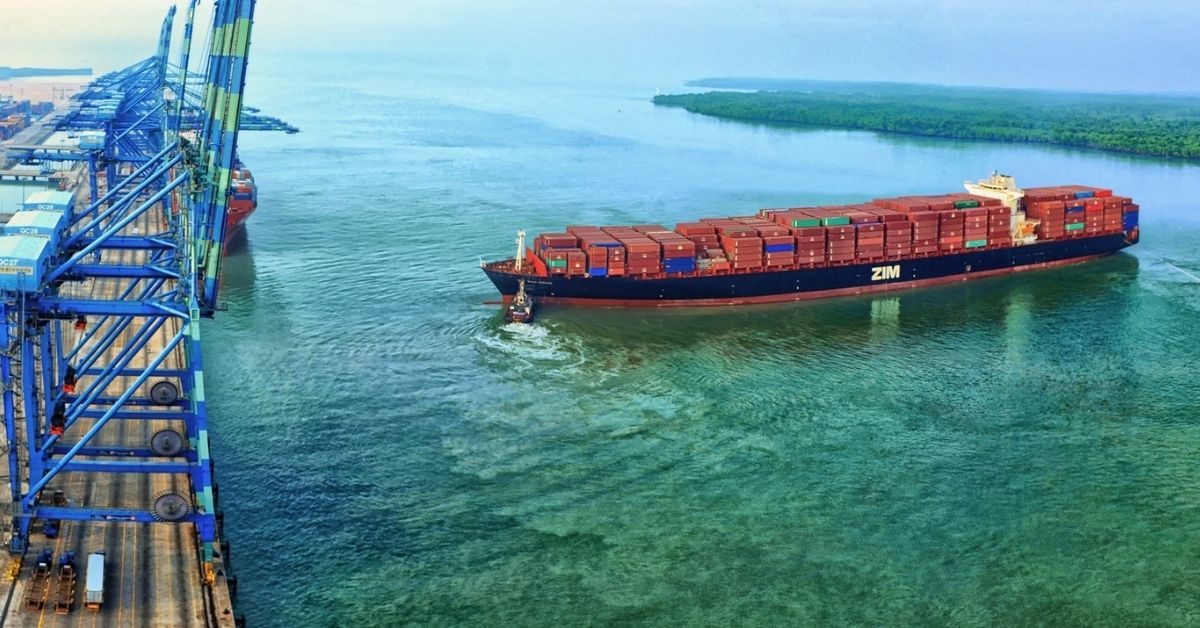Shifting geopolitical and demographic landscapes, not least uncertainty about China’s role as a reliable long-term manufacturer as tensions with the US escalate, will reshape trade and shipping flows over the rest of this decade.
This will create new opportunities for countries and companies in Asia, according to Neil Johnson, Co-Founder of customs firm TNETS which processes some $200bn of trade each year.
In the latest episode of The Freight Buyers’ Club podcast, produced with the support of the Dimerco Express Group, Johnson said his company was receiving enquiries every day from clients “looking to diversify the geography of their supply locations”.
At the same time, container lines, airlines and logistics providers were already preparing for this sourcing transformation by investing heavily across Asia. “The carriers are coming,” he said. “We are seeing more investment in freight services and more investment in airlines around the region. I think, the physical part [of this procurement shift] is probably the easier part to deal with.”
The sourcing shift is accelerating as China’s reliability as a long-term trade partner is questioned due to its closeness to Russia, its sabre-rattling over Taiwan and rising tensions with the US. Drewry Maritime Research reported earlier this month that container shipping is “in the crosshairs of a superpower tussle that could divide the world and reshape trading networks”.
China’s severe Covid lockdowns, ageing population, rising production costs and US tariffs on Chinese imports are also major push factors for manufacturers and retailers assessing their sourcing options.
However, pull factors are also playing a role in this decoupling from China, a trend that will change container shipping and air cargo trade flows, according to Johnson. For example, the burgeoning middle classes emerging in countries with younger demographics than China are creating new markets as well as providing ready flows of labour (see video here available for publication).
“In Indonesia the middle class is going to be huge, and they are going to have tremendous spending power,” added Johnson. “Indonesia is definitely going to benefit from China plus one, or plus two, or plus 12, strategies.
“But Indonesia needs additional investment in logistics. That has been forthcoming, but it has been forthcoming very, very slowly.
“There are new ports being built, airports are getting some investment, but it’s still not going to be sufficient to meet the needs of that growing middle class.
“Indonesia is the largest economy in Southeast Asia and it’s going to benefit from decoupling [of manufacturing from China but] it needs more infrastructure and that’s right across the archipelago.”
Johnson said Bangladesh and Vietnam in Asia, and Mexico in the Americas, would also be beneficiaries of the shift of manufacturing from China. But all require improvements in their trade and customs processes, and logistics, shipping and air freight infrastructure.
“Having government departments that have got the know-how to smooth the way for businesses to flourish, to issue licenses, to get out of the way when infrastructure and when money is made available rather than being a sort of unnecessary gatekeeper – those are critical things and, it’s still something which is quite slow in coming around the region.”
He added: “The decoupling from China is a very, very long-term project, compared to the speed with which carriers can, for example, switch on and switch off services. In order to, for example, replace a semiconductor plant that has been churning out product very, very smoothly and consistently in China – that’s going to take three to five years to replace in even a well-developed economy such as Singapore or Malaysia.
“So, there are issues with decoupling, but there are other drivers which are going to drive this diversification.”





